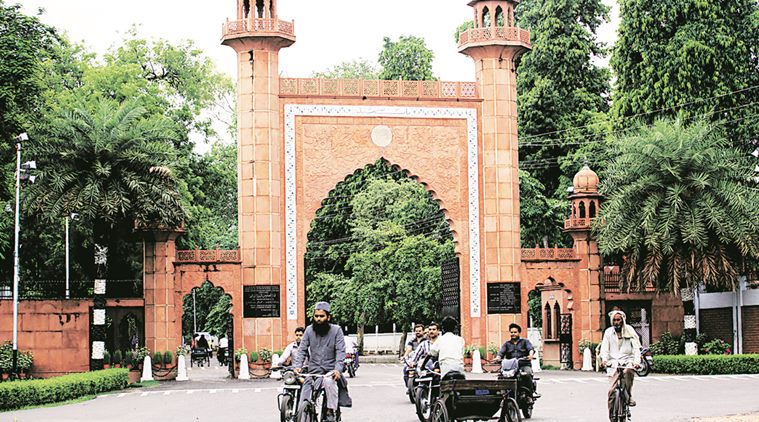 AMU spokesperson Rahat Abrar denied to comment on the issue because the matter of minority character is sub judice in the Supreme Court. Archive
AMU spokesperson Rahat Abrar denied to comment on the issue because the matter of minority character is sub judice in the Supreme Court. Archive
The Central government’s decision to withdraw its appeal in the Supreme Court challenging the Allahabad High Court judgment which held that Aligarh Muslim University is not a minority institution has once again initiated a debate over the minority character of the institution.
AMU, which was declared a minority institution by the AMU Amendment Act in 1981 by the Parliament, may loose the autonomy of deciding policies for admission process and such other academic matters after loosing the status of a minority institution.

[related-post]
The university grew out of the work of Sir Syed Ahmad Khan, a Muslim reformer and statesman, who saw a need for Muslims to acquire proficiency in the English language and Western sciences. In 1877, he founded the Muhammadan Anglo Oriental College in Aligarh and patterned the college after Oxford and Cambridge universities. By 1920 the college was transformed into the Aligarh Muslim University through The Aligarh Muslim University Act, 1920.
According to sources in the university, if the university looses its minority character, it will have to implement the national reservation policy in admissions. i.e. it will have have to reserve 50 per cent seats for OBC, Scheduled Caste (SC) and Scheduled Tribes (ST), like other Central universities.
At present, the university does not have religion or caste-based reservation system for OBC, SC, ST or Muslims in admissions in academic courses. Presently, the university takes admissions on 50 per seats (of any course) from internal students. Another fact is that, AMU as a minority university has the right to give admissions to Muslims on 50 per cent seats, but it has not brought it in practice so far.
AMU spokesperson Rahat Abrar denied to comment on the issue because the matter of minority character is sub judice in the Supreme Court. But an AMU faculty said, “Sir Syed Ahmad Khan had founded the institution with the aim that Indian Muslims could get modern education without compromising with Islamic values. If reservation system will be introduced, it will affect the mission of empowering more and more Muslims by educating them in AMU.”
“The university’s legal battle for minority character is all about for its unique identity. Being a Muslim university, views of AMU teachers and students on different national issues matters politically too,” said a research scholar at the university.
Story continues below this ad
A university official told The Indian Express said that the minority character will not provide any additional financial assistance to AMU. “Whatever benefits and financial grants we are getting from the Centre at present will remain same. But the issue is related to its identity and ethos and that is what the AMU family is fighting for,” said an AMU official. The official said that AMU is the only Central university that promotes educational and cultural advancement of Muslim of India.
However, an official in the Union Human Resource and Development Ministry said that in the absence of minority character, students of other castes like OBC, ST and ST will get an opportunity to get admissions in AMU that is an institution of prestige globally.

 AMU spokesperson Rahat Abrar denied to comment on the issue because the matter of minority character is sub judice in the Supreme Court. Archive
AMU spokesperson Rahat Abrar denied to comment on the issue because the matter of minority character is sub judice in the Supreme Court. Archive





































